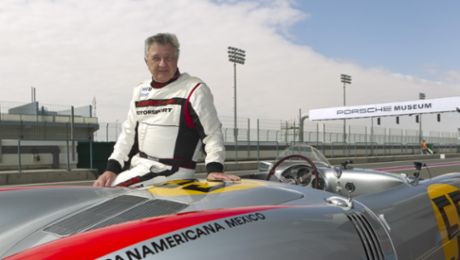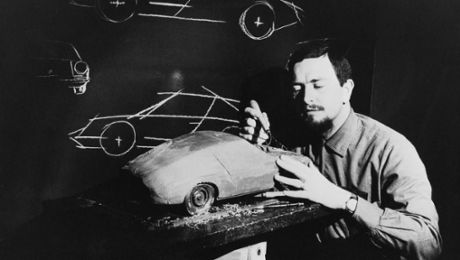For more than 110 years, Porsche developments have been moving people. In order to make it possible to experience the most important development steps and product history of the brand, the Porsche Museum has defined a clear concept for itself. Its aim is not only to keep its vehicle collection as authentic as possible, but to also make sure its exhibits are roadworthy. That is why the Porsche Museum has its own workshop in the foyer. Here, eight certified technical specialists look after Porsche sports cars and race cars, as well as prototypes and test vehicles from any year of construction. Historical motorsport also has its base here. In order to facilitate communication between the motorsport experts from both past and present and guarantee constant know-how transfer, the historic motorsport department also uses the Development Centre in Weissach as an extended workbench. Weissach is the heart of Porsche motorsport today. In the museum workshop it is possible to perform repair and maintenance work as preparation for the numerous rally outings, as well as complete restorations and almost all the required work.
For more extensive work, museum employees can call upon the customer vehicle restoration expertise at Porsche Classic or Porsche Motorsport. Vehicles from the company collection travel around the world as brand ambassadors. Every year, the Porsche Museum sends over 750 vehicles from its collection to over 300 events in over 30 different countries. Prior to their travels, each individual vehicle will be prepared in the museum’s workshop to ensure that it meets its original purpose – to drive and inspire.


